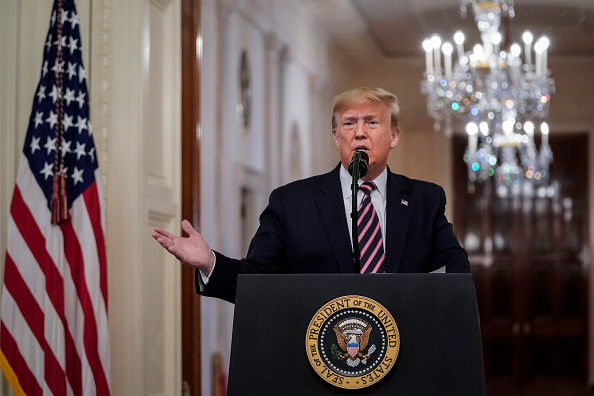Responding to reports that President Donald Trump intervened in three cases involving war crimes, issuing full pardons to two soldiers and reversing disciplinary action against another, Daphne Eviatar, director of the Security with Human Rights program at Amnesty International USA said:
“President Trump’s actions send a message that laws don’t matter to this administration. Under his command, U.S. wars have had particularly brutal impacts on civilians, killing thousands and raising serious concerns that the military’s practices are systematically violating laws of war, without any transparency or accountability.
“These latest pardons are a blow to the families of civilians who have suffered most under this culture of impunity. They also compound risks for civilians worldwide, and put U.S. service members who do respect and follow the laws of war and count on them for protection, in even more danger.”
Context and background
In March, Amnesty International reported compelling evidence that U.S. air strikes in Somalia killed 14 civilians and injured eight more, in five attacks that may have violated international humanitarian law. The research covered just five of the more than 100 air strikes the U.S. Africa Command (AFRICOM) conducted in Somalia in the previous two years, during which time it claimed it killed and injured zero civilians. It has since admitted responsibility for two civilian deaths, prompted in part by Amnesty’s report.
In April, Amnesty International released the findings of a comprehensive investigation into civilian casualties caused by the U.S.-led Coalition in Raqqa, Syria. The investigation – which lasted more than 18 months, including more than two months on the ground in Raqqa, more than 200 site visits and more than 400 interviews – documented how U.S., U.K. and French forces killed at least 1,600 civilians during the military campaign from June-October 2017. The U.S.-led Coalition has acknowledged only about 10% of those, and while it is believed that U.S. forces carried out the overwhelming majority of the strikes, the lack of transparency around reporting means it is impossible to know which forces are responsible for which strike. Our investigation suggests that U.S. forces and allies did not do all that they could and should have done to minimize civilian harm, or to investigate the consequences of strikes afterwards.
To arrange an interview or further information contact Mariya Parodi, [email protected]

